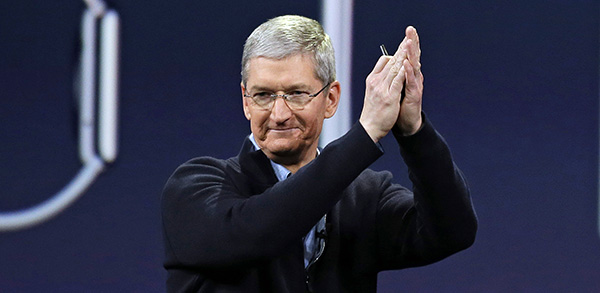
Apple and China: Is the bittersweet love affair over or just beginning?
CUPERTINO, California-based Apple Inc. is the embodiment of the corporate American Dream. What began in the mid 1970s, as a quirky personal computer company, is now the world’s largest publicly traded corporation in terms of market capitalization, the largest music retailer and the largest tech firm in terms of assets (though Samsung generates more revenue).
Are iPhone sales immune to bad publicity?
Apple owes much of its success to the iPhone, the high-end smartphone-cum-must-have accessory for millions of affluent consumers the world over. All iPhones are made in Chinese factories by Taiwanese contractors Foxconn and Pegatron.
While Apple’s outsourcing methods for manufacturing have not been without controversy, no amount of bad publicity has managed to put a dent in its record-breaking iPhone sales. Reports detailing how Pegatron employees are subjected to excessive working hours for low wages (among 86 labor rights violations) and a spate of suicides at Foxconn are easily rationalized when a) every other major mobile phone company contracts the same China-based factories as Apple and b) the new iPhones are really cool.
https://instagram.com/p/3A6edGDBJS/
The greening of Apple
Apple has already at least attempted to address the Chinese labor rights controversies it ultimately benefits from. Now it is actively addressing the large amount of pollution the manufacturing and shipping of Apple products creates by powering its massive Chinese supply chain with renewable energy.
From China Dialogue:
“The world’s biggest company by market capitalisation said it would build 200 megawatts (MW) of solar projects in different areas of China to provide low-carbon electricity to most of the companies that supply it with raw materials, components and assembly.”
Apple also said it had completed 40MW of solar projects in Sichuan Province, which has enabled the company’s 19 corporate offices and 24 retail stores in China to be classified as ‘carbon neutral’.
Foxconn itself has announced it will generate as much clean energy as it consumes at its giant 120,000-employee Technology Park in Zhengzhou.
iChina: When the manufacturer becomes the consumer
With huge increases in iPhone shipments, massive revenue growth and a greener image, there seems to be no stopping Apple. Much of that has to do with a focus on Pacific — mainly Chinese — markets. The result? An impressive 4th quarter revenue increase of 99 percent in the Greater China region.
From TechCrunch:
“In this final fiscal quarter of 2015, Apple’s revenue in China grew to $12.51 billion from $6.29 billion in 2014. Revenue in China again outgrossed that of Europe at $10.57 billion. The Greater China region (including Taiwan and Hong Kong) remains Apple’s second largest market after the Americas, underscoring the critical importance of this area to Apple’s future growth.”
China, once virtually restricted to the manufacturing of Apple products, now accounts for 24 percent of the company’s global sales. What makes this growth all the more impressive is that it has happened during an overall slowdown of the Chinese economy.
Opinion: By the iPhone’s 10th anniversary, China will be Apple’s biggest market https://t.co/TnRb2F1Ek7 pic.twitter.com/YbfUGXd1vj
— 9to5Mac (@9to5mac) October 29, 2015
Though there are still naysayers who doubt Apple’s future and foretell an end to the iPhone miracle, citing a positive spin on the above statistics and an increased market share for competitors, it is hard to argue with the raw numbers.
By 2017, the 10th anniversary of the iPhone, China may be Apple’s largest market, suggesting that the love affair between the largest tech firm and the world’s most populous country may still only be in its beginning stages.
READ MORE
- Strategies for Democratizing GenAI
- The criticality of endpoint management in cybersecurity and operations
- Ethical AI: The renewed importance of safeguarding data and customer privacy in Generative AI applications
- How Japan balances AI-driven opportunities with cybersecurity needs
- Deploying SASE: Benchmarking your approach
